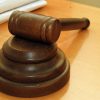A US government economic relief program provided loans to five prominent anti-vaccine organizations that have spread misinformation about Covid-19, the Washington Post reported.
Covid-19’s astounding death toll in the US
Read more
Five anti-vaccine groups received more than $850,000 from the paycheck protection program (PPP), according to the Center for Countering Digital Hate, a UK-based group which fights misinformation and hate speech online.
Congress created PPP loans to help small businesses hit by the Covid-19 pandemic. But documents obtained via a lawsuit brought by multiple news organizations showed groups that have promoted anti-vaccine misinformation and conspiracy theories online also received the funds.
The groups are the National Vaccine Information Center, Mercola Com Health Resources, Informed Consent Action Network, Children’s Health Defense Co and the Tenpenny Integrative Medical Center.
Two Covid-19 vaccines, made by Moderna and Pfizer-BioNTech, have received emergency use authorization in the US. Trials for both involved tens of thousands of people and showed both had 95% efficacy.
But misinformation and conspiracy theories abound. The World Health Organization partnered with Facebook last year to help counter misinformation, though conspiracy theories are still spreading on the site.
Twitter and YouTube have also tightened policies on vaccine misinformation.
The Children’s Health Defense Co was founded by Robert Kennedy Jr, the son of the former attorney general, senator and presidential hopeful Bobby Kennedy and nephew of President John F Kennedy.
The group says it is not anti-vaccine but is committed to raising questions about safety. Still, it has shared conspiracy theories on social media and sued Facebook last year after the platform restricted its ability to advertise.
“I’ve never heard anybody say that a loan is only available to people who don’t question the government,” Kennedy told the Post.
PPP loans have been subject to significant criticism since they were introduced last spring.
Few restrictions were set regarding who could receive a loan. Among the more controversial recipients were debt collectors, the Los Angeles Lakers NBA team (who ultimately returned the money) and more than 5,600 companies in the fossil fuel industry.
Many of the small businesses the program was intended to help struggled to access it.
Congress said PPP loans were meant to prioritize businesses in “underserved” markets, which includes low-income communities, rural areas and businesses owned by people of color, women and veterans. But according to a Center for Public Integrity analysis published last month, most went to businesses in communities that already had more access to resources.






















































Свежие комментарии